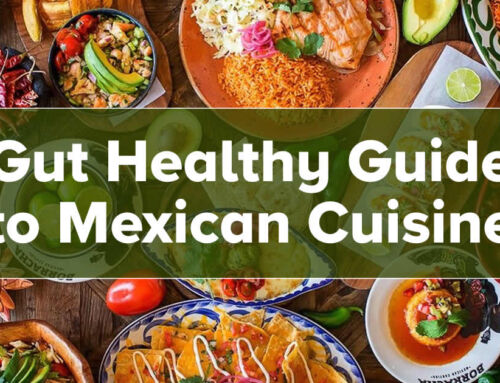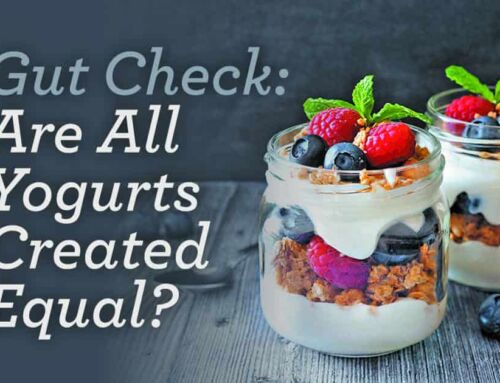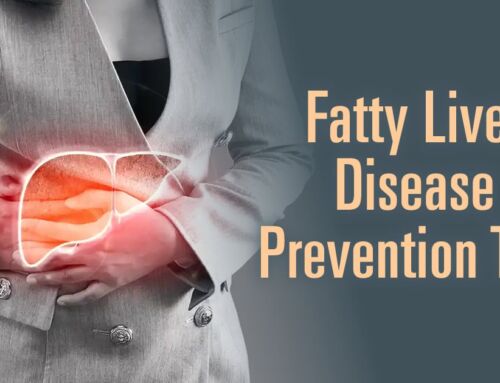I often get asked for recommendations on dietary choices that will help promote a healthy gut, so I wanted to provide a brief background on the gut along with a few things to keep in mind when making food choices. My hope is that this information will help to educate those reading the article on the important role the gut plays in our overall health.
The gut is often referred to as the gut flora or gut microbiota, which are the names given to the microbe population living in our intestines. Since this is a non-scientific article, I’ll just keep it simple and refer to this area as “the gut”. The intestines contain approximately 100 trillion microorganisms and 10 times more bacteria than the cells in the entire body. Those are difficult numbers to quantify, but they drive home the fact that our gut health is very important to our body.
We need to foster the growth of the good bacteria in our gut, which will benefit us by boosting our immune system, improving digestion and absorption, making vitamins and inhibiting the growth of potential pathogens. I’ll explain how we can do this with dietary choices later in the article.
NEW CONCEPT: We need to think about our food choices as eating for the 100 trillion microorganisms in our gut. Basically, WE ARE WHAT OUR BACTERIA EAT!
What are the functions of the Gut?
The makeup each person’s gut is different with variances in the composition of the various microorganisms. Some of the important functions of the gut are:
- Helps the body digest foods
- Neutralizes some of the toxic bi-products of digestion
- Discourages the creation of bad bacteria and yeasts
- Provides a barrier effect, which protects our immune system
- Produces vitamins (B and K)
- Regulate the growth of cells in the gut and keeps them healthy
When your gut is balanced, you are more likely to stay healthy, be in a good mood and you have more energy. When your gut microbiome is out of balance (called dysbiosis), you are setting yourself up for a host of potential health issues like weight gain along with a higher incidence of diabetes, cancer and other serious medical conditions.
Effects of too much Bad Gut Bacteria
When our gut populates with too much bad bacteria unhealthy conditions can occur. Some of the more common symptoms are:
- Constipation
- Diarrhea
- Intestinal gas (excessive amounts)
- Producing carcinogens
- Bad breath
Healthy Gut – Diet is the Top Priority
There are several factors that contribute to the health of your gut microbiome, including your environment, the amount of exercise and sleep you get, and of course, stress. But the number one factor that determines what microbes live in your gut is your diet.
Here are my top dietary suggestions for maintaining a healthy gut:
Remove sugar and processed foods from your diet. These foods are quickly absorbed by the small bowel, which means that they don’t feed the microbes in your gut. This causes the microbes to feed on the cells of your intestinal wall therefore reducing the intended barrier between your gut and the rest of your body. This can lead to inflammation and autoimmune diseases.
Make vegetables your primary source of carbohydrates. This means eating a lot of green vegetables like broccoli, spinach and kale to name a few. Also, sweet potatoes and low-sugar fruits (e.g. raspberries) are good sources of carbohydrates as well. Try and stay away from refined carbohydrates – high calorie density, refined grains, low fiber and high in saturated fat.
Eat healthy proteins. Although protein is not a major source of food for gut bacteria, it does help keep the bowel healthy and helps promote muscle growth. We think this helps reduce the development of things like “leaky gut”. Keeping your bowel lining healthy gives a more consistent and healthy environment for the gut bacteria which helps decrease the development of dysbiosis.
Role of Probiotics and Prebiotics play in your gut health:
- Probiotics – Live bacteria and yeasts that are good for your digestive health. Probiotics add more good bacteria to your gut. Good sources of probiotics are yogurt, sauerkraut, miso soup, fermented and soft cheeses. There are a variety of supplement options for probiotics as well. Whether everyone needs the addition of this bacteria is debatable. I recommend discussing how probiotics may help your health with your doctor before adding them to your diet. You can learn more by reading my article on probiotics
- Prebiotics – Are a dietary fiber that act as a fertilizer for your existing good gut bacteria and help them proliferate on their own. Good sources for prebiotics are asparagus, leeks, onions, garlic and fruits (apples and bananas).
- SUMMARY – A mixture of both prebiotics and probiotics can help strengthen your gut health. I recommend discussing with your doctor how to best introduce them into your dietary regimen with foods and supplements.
Eat more polyphenols. Polyphenols are naturally-occurring compounds found in in plants and foods in the Mediterranean diet. According to ScienceDirect, once consumed, only about 5-10% of polyphenols are directly absorbed in the small intestine, while the rest make their way to the colon to be broken down by our gut bacteria into metabolites, which then exert their important physiological effect. Polyphenols have a prebiotic effect and are a great way of feeding our good gut bacteria with the nutrients they want to eat. Good sources of polyphenols are spinach, green tea, broccoli and red wine (enjoy in moderation!).
Popular Diets. There are popular diets like FODMAP, SCD, Paleo and Mediterranean Diet to name a few that all can be complimentary to a healthy gut. I’ll cover popular diets in future article(s) in more detail along with recommendations for each.
Achieving a Health Gut Balance
We don’t know the perfect balance of species of bacteria in our gut and probably never will. Studies like the one I referenced in my Exercise and Digestive Health article provide evidence in the importance of diversifying our gut bacteria and how an active lifestyle helps achieve this objective. Every one’s gut bacteria are different and specific to that person which make specific diet recommendations more difficult as you need to tailor the diet to fit your gut. This comes with a lot of trial and error and frustration. Work with your physician and dietician and make sure you pick a physician that has an open mind to diet, supplements and holistic approaches and not just medications. Make a food and symptom diary and track you progress with certain types of diets. If you put in the time and work you will begin to develop a diet regimen that works best for you and the trillions of bacteria that call your guts home. This, I feel, will help lead to true overall health. Thank you.
Image Credit: Steven Gschmeissner with Getty Images






